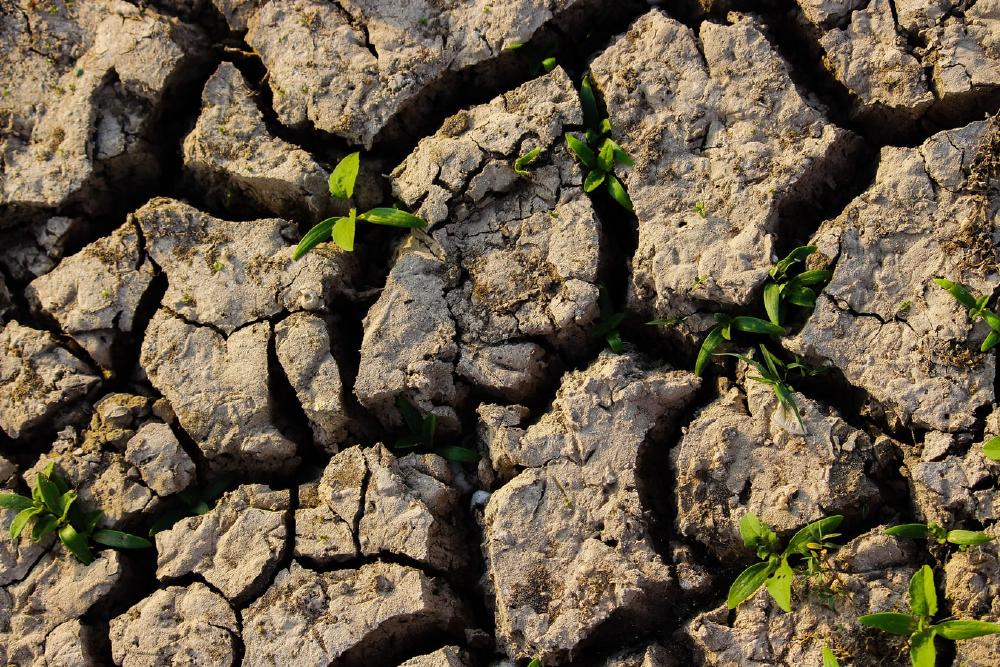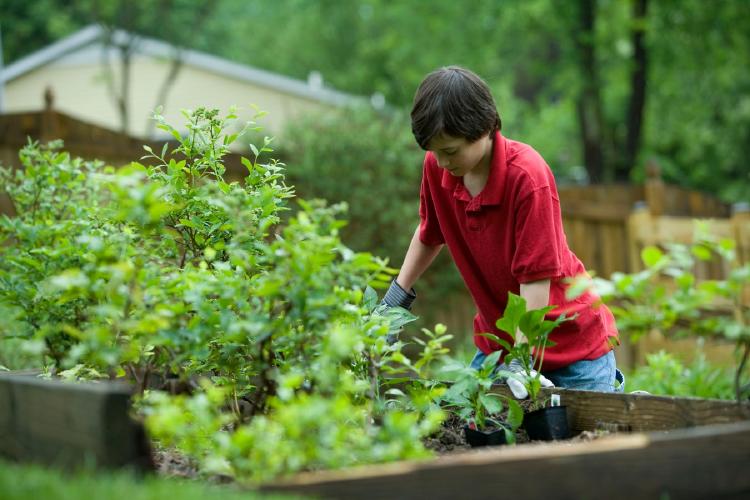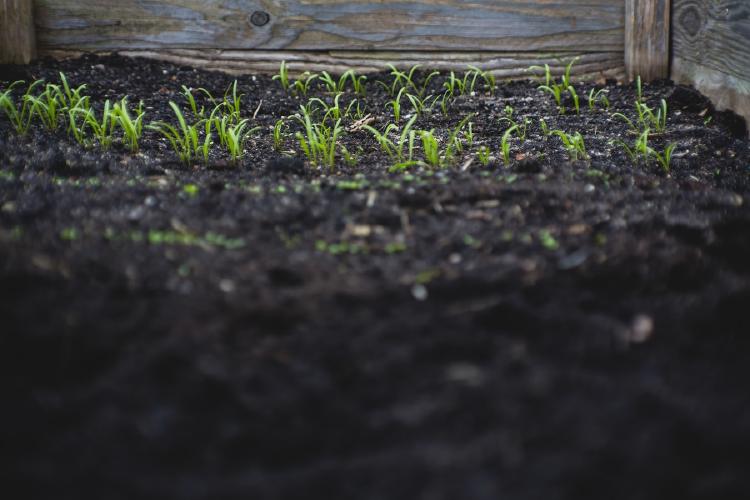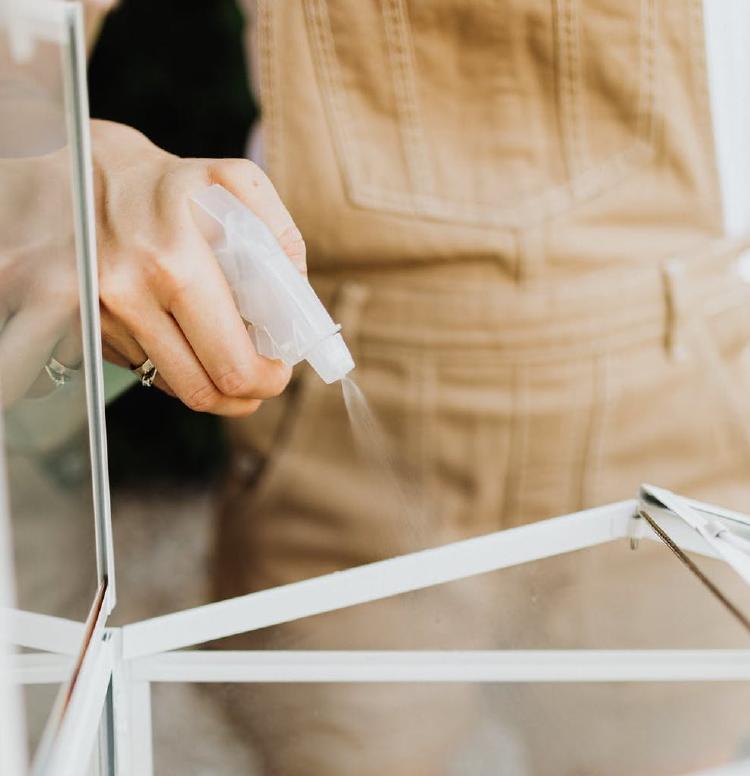
When we start composting, one of the most common problems is that the compost is too dry, which can affect the decomposing process. There are a few reasons why this can happen but don’t worry, there is no reason to panic, all of them can be easily solved!
Before we start dealing with the dryness problem, let’s make sure that the compost is too dry and that it’s not something common from the process of composting.
There’s an easy and quick way to figure this out. Here’s a tip: we recommend using gloves for this. Let’s start!
The first thing to do is to grab a handful of compost from the center of your compost heap. Then, squeeze it for ten seconds.
TIP: Composting requires a little bit of patience. Before checking the compost humidity, make sure that it has been composting for at least a week. Otherwise, it’s probably too early to know if the compost is too dry. If there hasn’t been any decomposition after a month, there is a dryness problem. If you did the squeezing test and it isn’t a dryness problem, take a look at the most common problems of composting to help you out: Composting Problems: Types and How to Deal with Them

Now that you know that your compost is too dry, we are going to learn some of the reasons that can be causing this and how to fix them.
Composting is an easy and fun activity to carry out but it can be a little tricky sometimes. Even so, don’t give up! If your compost is too dry, the reasons for it are more common than what you think and can be easily solved, allowing your heap to recover quickly. So, what is making your compost heap too dry?
Compost is made from four basic elements: carbon (also known as ‘browns’), nitrogen (also called ‘greens’), water and oxygen. If one of these parts is uneven, it could cause some problems with your compost. In case you’re not familiar with these elements, here’s a guide to achieving a balance between greens and browns. If the compost heap is too dry, an excess of browns/carbon materials is usually responsible for this.
Learn more about this: The Perfect Compost Ratio: Greens to Brown Balance
Technical words can be scary, but don’t worry! Browns are materials like paper, branches, cardboard, among others. What you have to do is to even the materials in the compost. Try adding some more greens like grass, flowers or remainders of fruit and vegetables. Make sure there is enough space for air to flow (but not too much, we’ll talk about it later), and remember to check that the compost is wet but not soaking wet. If your compost is too dry, this is one of the easiest ways to fix it.
This can happen because the compost bin is located in a place where there’s too much sun or wind exposure, affecting the compost humidity because the water in the compost evaporates faster than usual.
Here we have a few solutions that can be carried out. The first one is to relocate the bin to a place protected from too much sun or wind exposure. They are needed, but not in excess. If this is not an option because of lack of space, don’t worry! You can cover the bin with a piece of cardboard, which will retain the compost humidity, and the problem will also be fixed.
If the compost bin has a wide and large surface, it means that there’s more compost in contact with air, causing the water in the compost to evaporate faster. Kind of similar to the exceeded sun or wind exposure case.
Try using a different compost bin, one that doesn't have a wide and large surface but a round or smaller one. If this is difficult to carry out, make sure that the compost is always wet (once again, not soaking wet) so it doesn’t dry out so fast. This can be done by watering the compost regularly or by using a piece of cardboard to retain the compost humidity.
Branches are useful materials for composting, but they can become a problem if there are too many of them. This is because if they are too long, they can leave too much space in the compost, allowing the air to flow more easily leading to faster evaporation of water.
Cutting and compacting the branches into smaller pieces will help to solve the problem. This also contributes to retain more heat in the compost, which will speed up the process of composting. However, remember that there needs to be some space in the compost for airflow, but not too much that affects the compost humidity. Find a balance that works for your heap!

Mix your compost heap regularly so the materials that are more in contact with air can be wet too, which is called redistributing humidity. Pst! It’s also a good chance to add some water to the compost. We’ll talk about how to do this later.
It is very important to remember to determine the problem in the compost before making any changes. Once this is done, make one change at a time. This way, it will be easier to see how the compost evolves and to assess if there’s something else that needs to be changed.
However, it is of great importance that you know why it is important to avoid the compost from being too dry.
Well, it’s not something that we just say and isn’t a big deal. It’s actually very important because if the compost is too dry, the process of composting can quickly stop. The microbes responsible for this process need a certain amount of humidity to work and if it’s not there, they can’t do their job properly. Just like humans and water! For this reason, keeping the compost wet is our way of helping the microbes to do their job. Let’s see how we can do this.
Up to this point, we have fixed our dryness problem and learned why it’s important that we have the right amount of compost humidity. Yay us! Now, it’s time to keep it this way and avoid our compost from being too dry again.
The easiest way to have the right amount of compost humidity is to add water to it each time we mix it. And speaking of water, there are a few things we need to take into consideration when watering the compost:
First of all, tap water contains chlorine. Why is this important? Because it’s a chemical that can kill the microbes responsible for composting, and they are our friends! We want them in our compost!
However, it doesn’t mean that we can’t use it. To keep the chlorine away, we can collect tap water in a bucket, leave it in the sun for a few hours (for example while we are studying or at work) and when we are done we can use that water for our heap. This will evaporate the chlorine and leave safe and useful water for our compost. That way you can get rid of the wait and anxiety of evaporating the chlorine because it can be done while you’re doing something else.

Another option is to use rainfall water following a similar method as before. Collect some of it in a bucket (you don’t need to leave it in the sun this time) and not only you can use it for composting but you’re also following one of the three R’s in the environment, reusing! How cool is that?
May you be interested on: Reduce, Reuse & Recycle: What does it Mean, How to put it in Motion
So, now that we know why the compost is too dry, how to fix it and how to keep it fixed, let’s get into action! Composting is an easy thing to do, so don’t let the small obstacles bring you down, everything has a solution! Baby steps are still steps, remember to be patient and that the perfect compost does not exist. Something good will come out of our compost so even if it doesn’t work out at once, it will eventually. Don’t give up, we are here to help you help the environment!